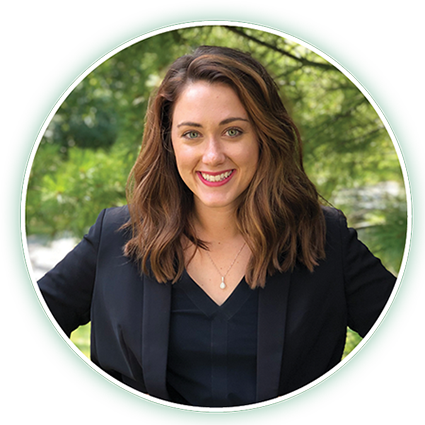ALUMNI PROFILE: Rebecca Tipton DeClue, PhD ’20
Educational Psychology
Licensed Clinical Psychologist, Burrell Behavioral Health, Columbia, Missouri
Q: For your PhD in Educational Psychology, you specialized in School Psychology. How did you discover this field of study?
A: I originally came to Baylor to specialize in Gifted Education and Quantitative Methods, but kept seeing other strands in the course catalog that interested me, and they were all in School Psychology. I had a passion for gifted education, fueled by personal experiences, particularly with my three younger siblings. Each is gifted but has disabilities, also known as twice-exceptional, with various diagnoses including ADHD, dyslexia, dyscalculia, and dysgraphia. I watched them struggle as they grew; they failed academically, struggled with identity development, and felt marginalized. Unfortunately, this struggle is too common, and I wanted to make a change. I wanted to learn how to evaluate children for early intervention and improve the globalized process to support all children’s needs regardless of ability, which is precisely what drew me to School Psychology as a profession. Since then, my passion for the field and the work we do in the schools and the community has only grown, and I know this is what I am called to do.
Q: Can you describe your daily work?
A: I currently work as a psychologist at Burrell Behavioral Health, which is a community-based mental health center. Each day is a bit different, but I love the variety. Generally, my role includes conducting psychological evaluations and providing individual, family, and group therapy services. I also consult with teachers and work individually with children enrolled in the local Head Start program for children four years old and under with various behavioral or social-emotional needs. I am also very excited to begin a training program for parents of children with autism
this winter. A large portion of what I do currently is evaluation for developmental disabilities such as autism spectrum disorder, which is a significant need in our community and nationwide.
Q: Would you encourage others to consider School Psychology?
A: Yes! There is a great need for clinicians nationwide, especially those who understand the evaluation process and how to interpret data to make impactful decisions. At Baylor, we are thoroughly trained in data-driven intervention across educational, family, and community systems. School Psychologists also understand the school environment: what constitutes an IEP, what “eligible” means, what services are available, and how to meet the needs of the family. Since kids spend about seventy percent of their time in school, there is a need to understand the educational setting to integrate care across environments.
Q: Did Baylor prepare you for that complexity?
A: One of the most important things Baylor taught me was the importance of understanding the big picture. Baylor gave me so many excellent opportunities to publish research with faculty members, give academic presentations, conduct assessments, develop programs, and supervise other students. I had practicum and internship experiences in numerous educational and clinical settings — Waco ISD, the BCDD (Baylor Center for Developmental Disabilities), the BARC (Baylor Autism Resource Clinic), McLane Children’s Hospital in Temple, and Bill Logue Juvenile Detention Center. Each of
these settings provided formative knowledge and skills, and I am thankful to draw from a diverse set of experiences to be a more impactful clinician and change agent in my community.
